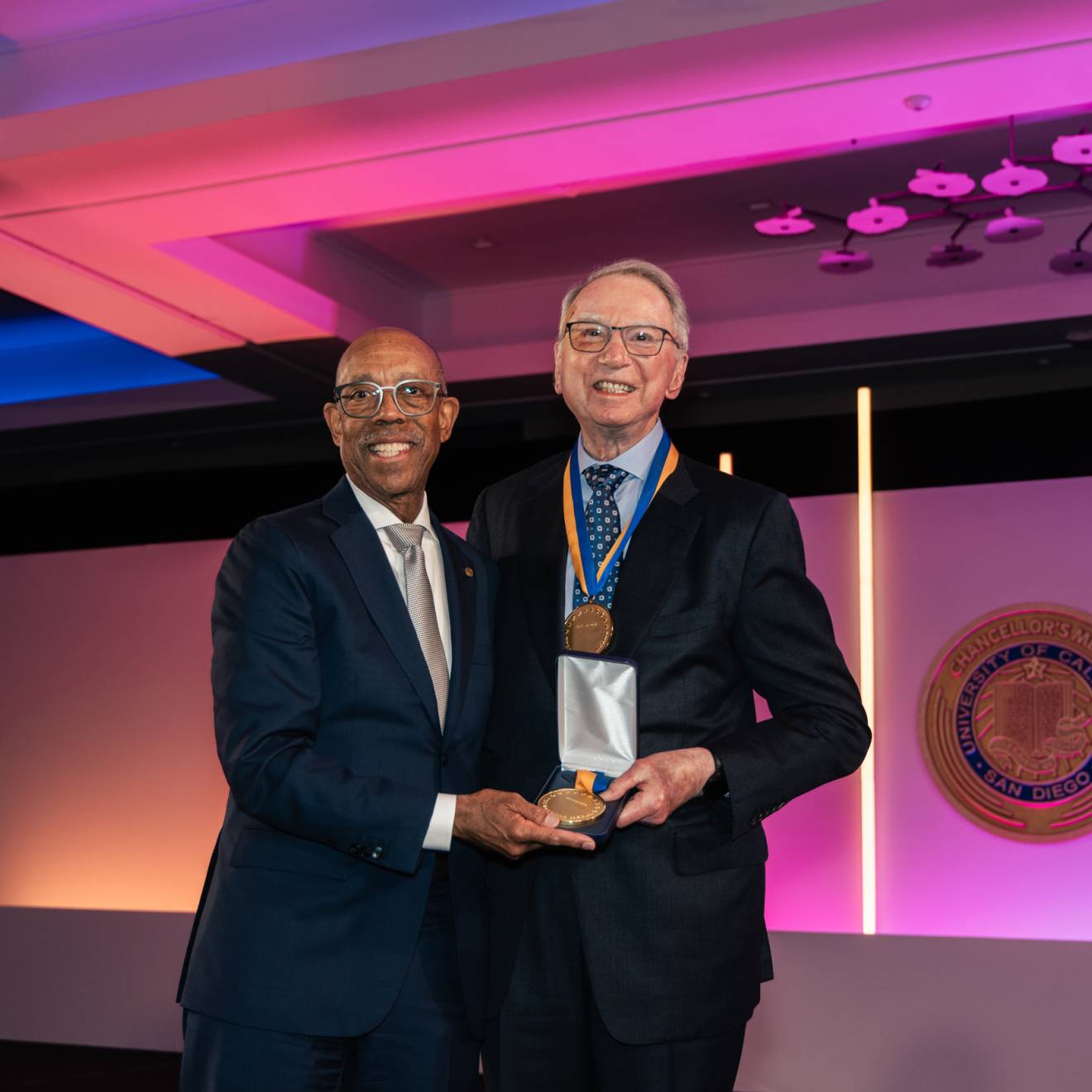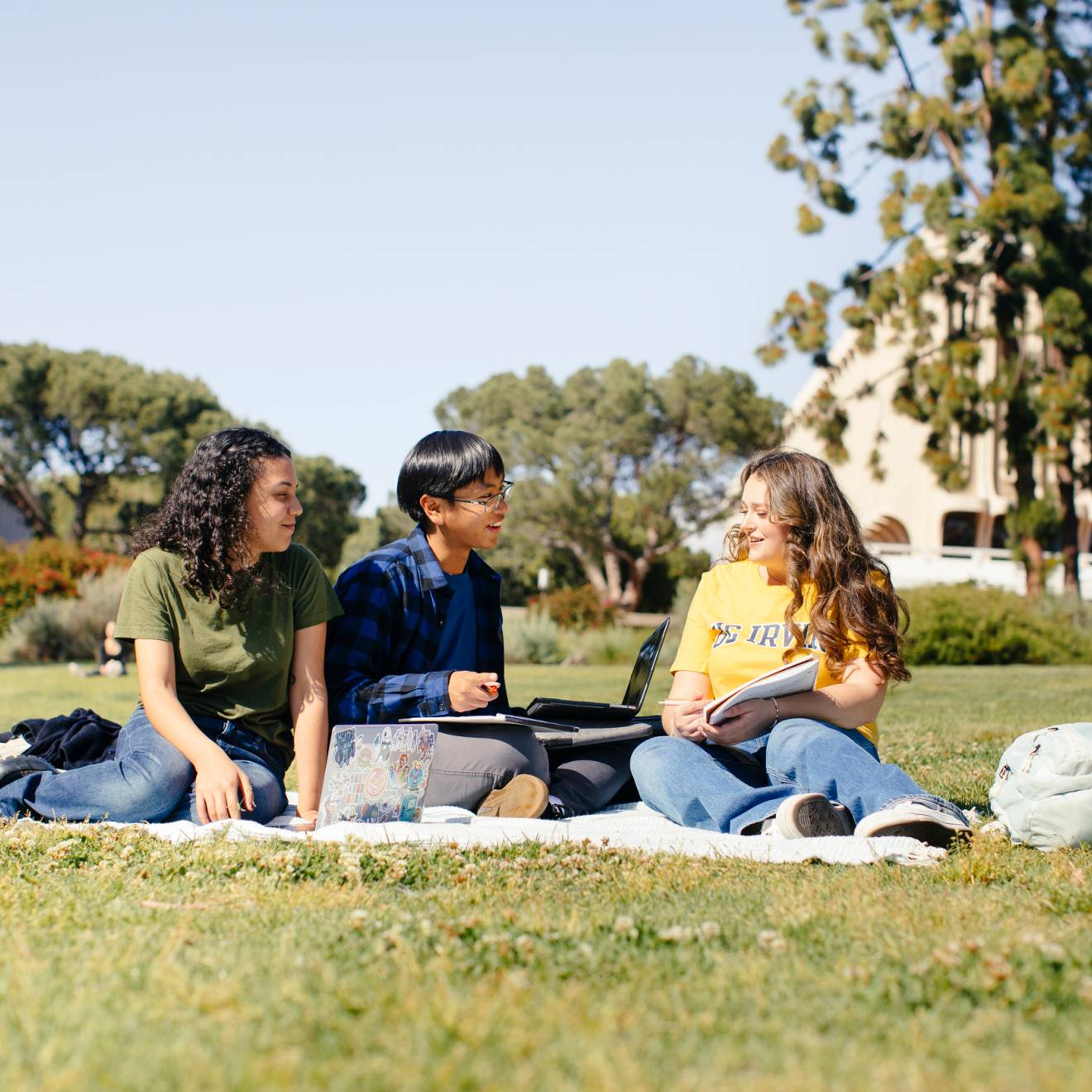Lila Thulin, UC Berkeley
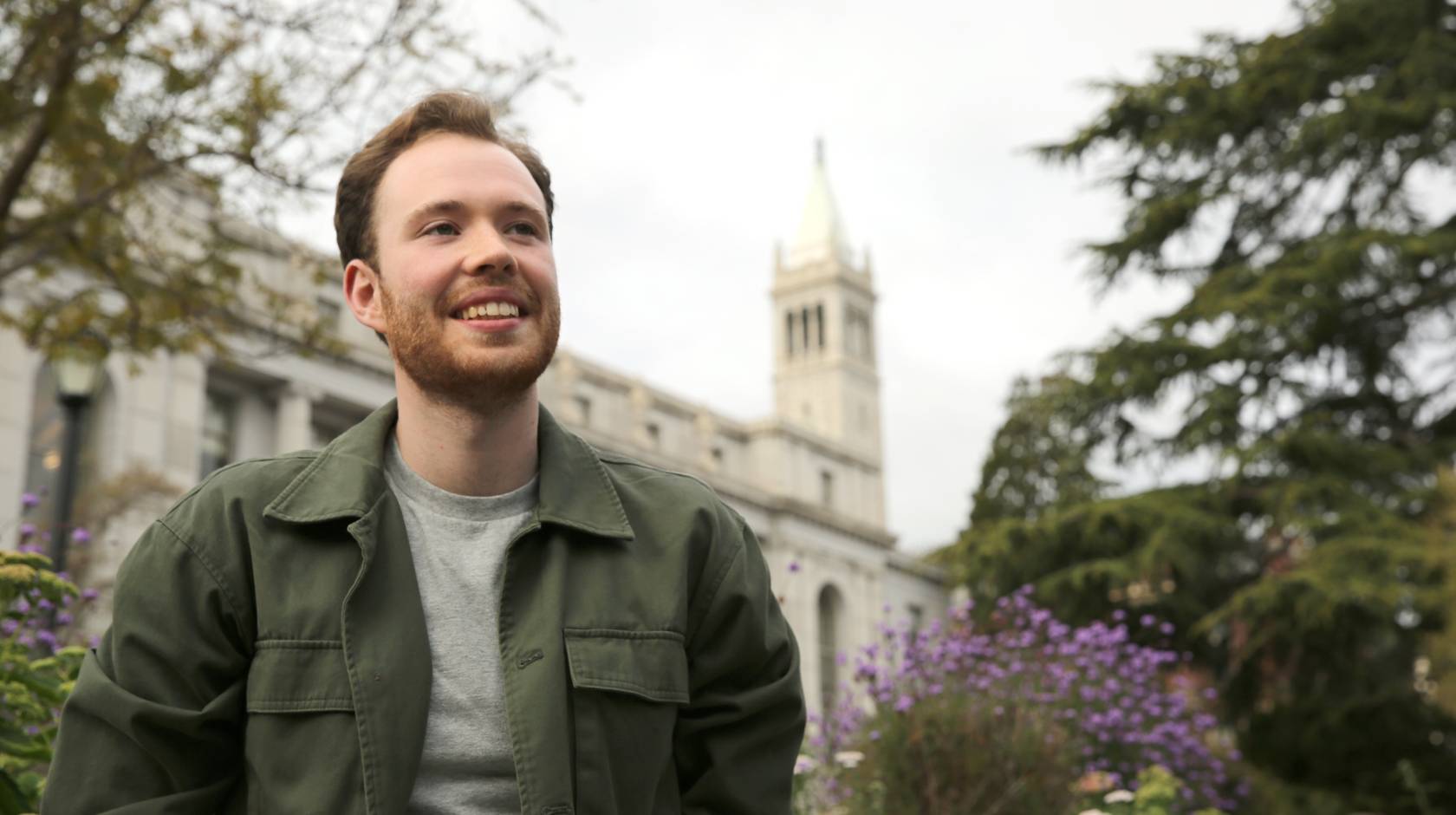
In the room that Asher Cohen will soon pack up, there’s a corkboard with mementos from his senior year at UC Berkeley: birthday cards, show programs for “Carmen” and “Hamilton” and an “I Voted” sticker. In the cabinet next to it is a math calendar a professor gifted him, tiny notebooks with Eiffel Towers that French Club distributed at Cal Day, a medical Spanish textbook, a mishmash of school supplies and an air fryer cookbook.
Cohen is the 2025 UC Berkeley University Medalist, the highest honor given to a graduating senior. In addition to stellar grades, this assortment of keepsakes hints at one of the reasons he was selected; Cohen has involved himself in pockets of curiosity and camaraderie across many corners of campus.
“A big part of my identity is that I do a whole bunch of different things,” he said. “I’m a math tutor, and I’m in charge of French Club, and I do medicine, and I do this niche digital psychiatry stuff, and now I have crippling senioritis,” he said “I’ve been able to find different communities and still cohesively put them together into one Berkeley lifestyle.”
Cohen said he wouldn’t have predicted the gamut of interests he’d be able to explore when, sporting a blue Cal sweatshirt, he first arrived at Berkeley as a Regents’ and Chancellor’s Scholar in fall 2021. On that day, the campus seemed immense and somewhat intimidating; there were more people on his dorm floor than in his 47-person graduating class at Le Lycée Français de Los Angeles, the French-immersion school he’d attended since preschool. His parents, neither of whom spoke French, had wanted their only child to grow up fluent in another language.
“It was just so immensely different from my high school experience,” Cohen remembered. “I felt like I was this tiny fish in this massive ocean.”
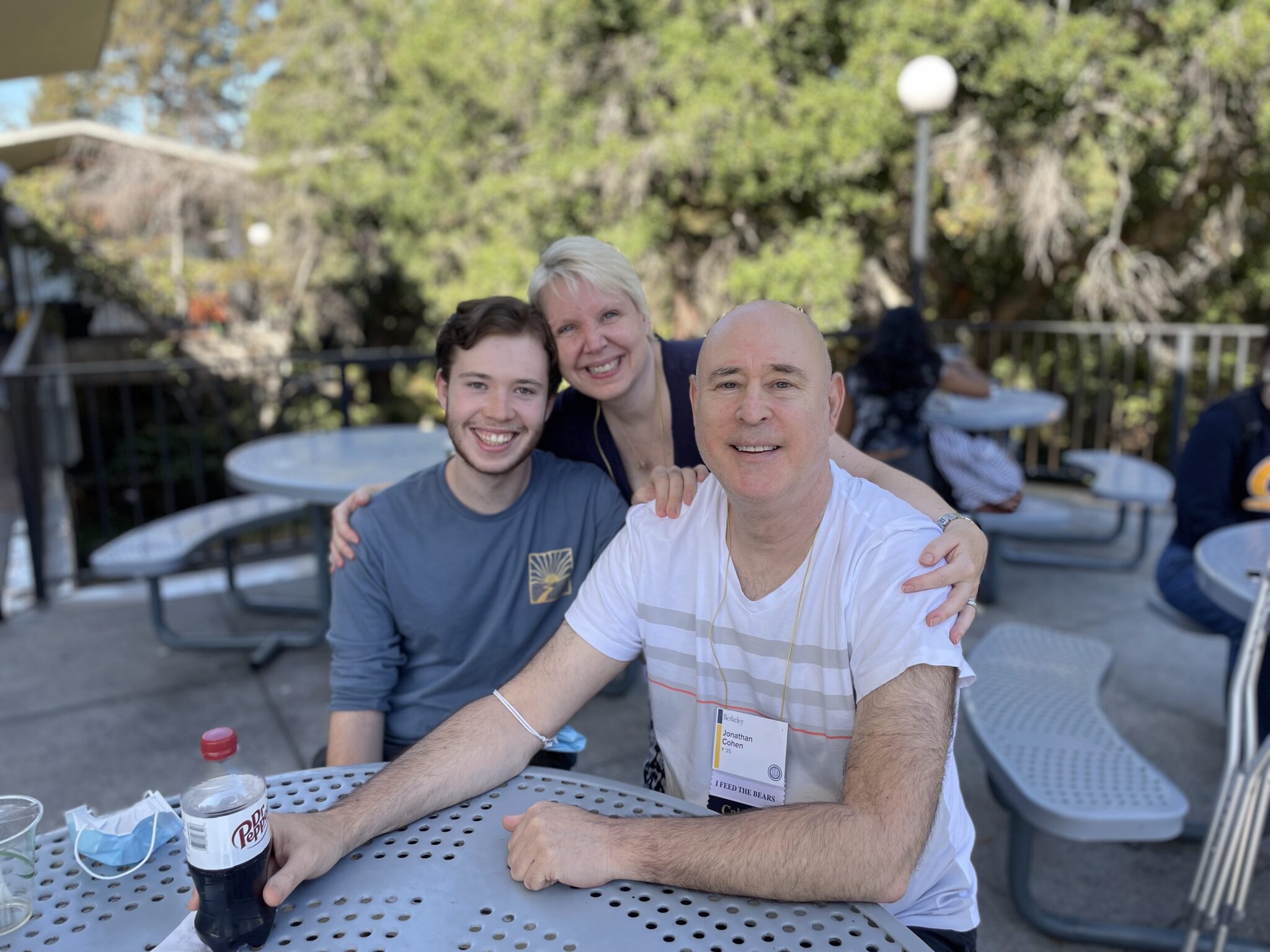
For the first time, he was taking physics and chemistry courses in English, swapping azote for nitrogen and vitesse for velocity. At the start of his college experience, Cohen gravitated toward physics; in high school, he’d sometimes watch YouTube videos of physics lectures in his free time. But he’d also attended a math Olympiad training program called Math Circle since third grade, and he eventually chose to major in math, partially because it paired better with pre-med coursework.
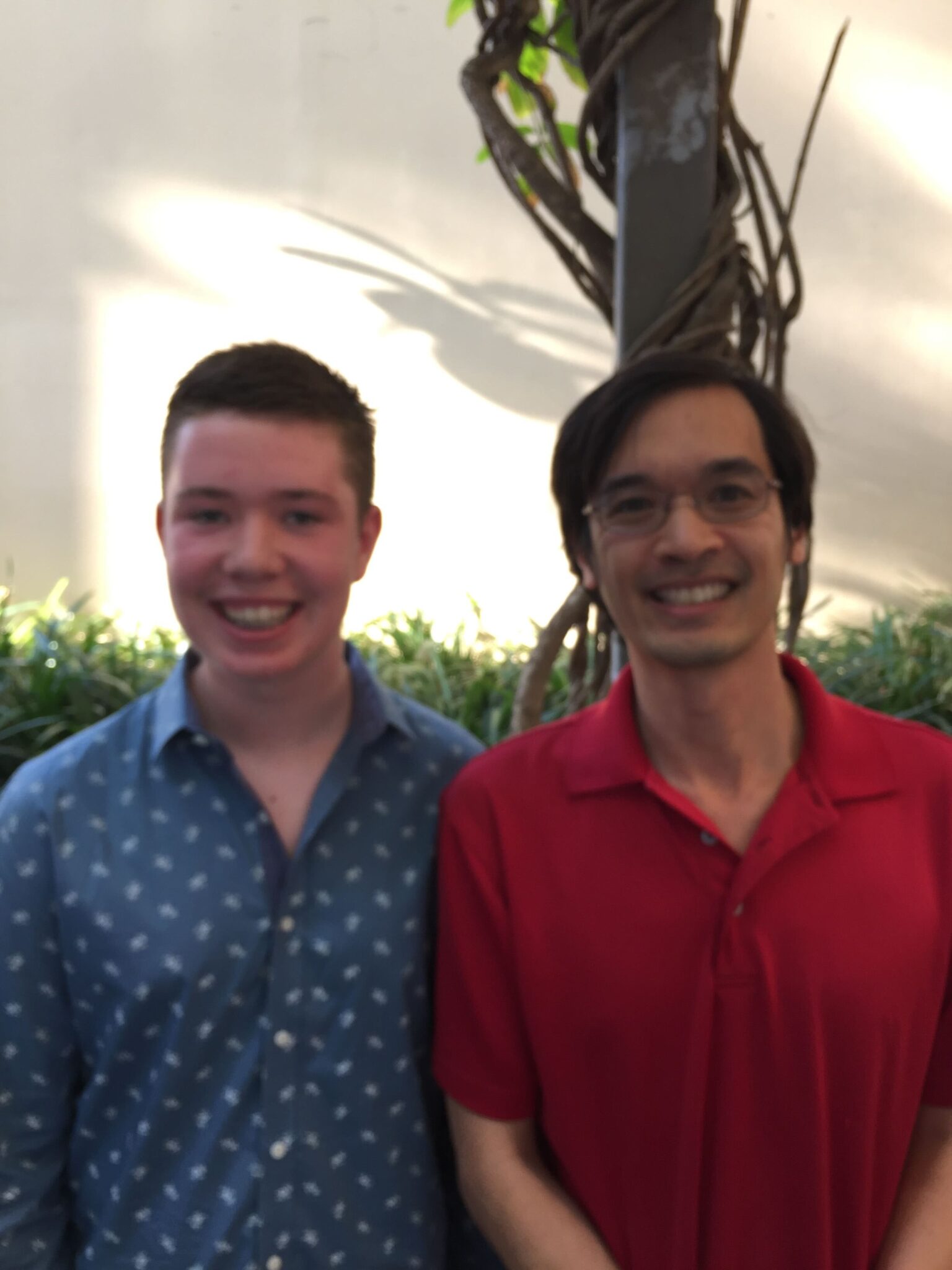
Cohen said this photo of himself and famed mathematician Terence Tao — taken at an event for an extracurricular math program Cohen participated in growing up — is “really one of my treasured possessions.”
Although Cohen is someone who speaks earnestly about theorems and proofs being “surprising and beautiful,” he ultimately decided that pure academia, in either math or physics, wasn’t the career path for him. “I just really enjoy connecting with people, comforting people, dealing with people’s most intimate, most vulnerable problems,” he said. Working in academia, “I just didn’t feel I would get enough of that.”
Soon after he’d reached this conclusion, Cohen found a summer internship that blended academia with impact, researching digital psychiatry at John Torous’ lab at a Harvard University-affiliated hospital. Like Cohen, Torous had been awarded a Regents’ and Chancellor’s Scholarship at Berkeley before pursuing medicine. In Torous’ lab, Cohen busied himself with two major projects, which were published in prominent journals. For one, he helped create an algorithm to predict mental health flare-ups by analyzing smartphone usage patterns from patients with schizophrenia. For the other, he statistically analyzed and evaluated the privacy features of more than 600 mental health apps, which the research team compiled into an online database it shared with patients and the U.S. Food and Drug Administration. In a recommendation letter for the University Medal, Torous wrote that Cohen “is the best student I have ever worked with in the decade I have been faculty at the Harvard Medical School.”
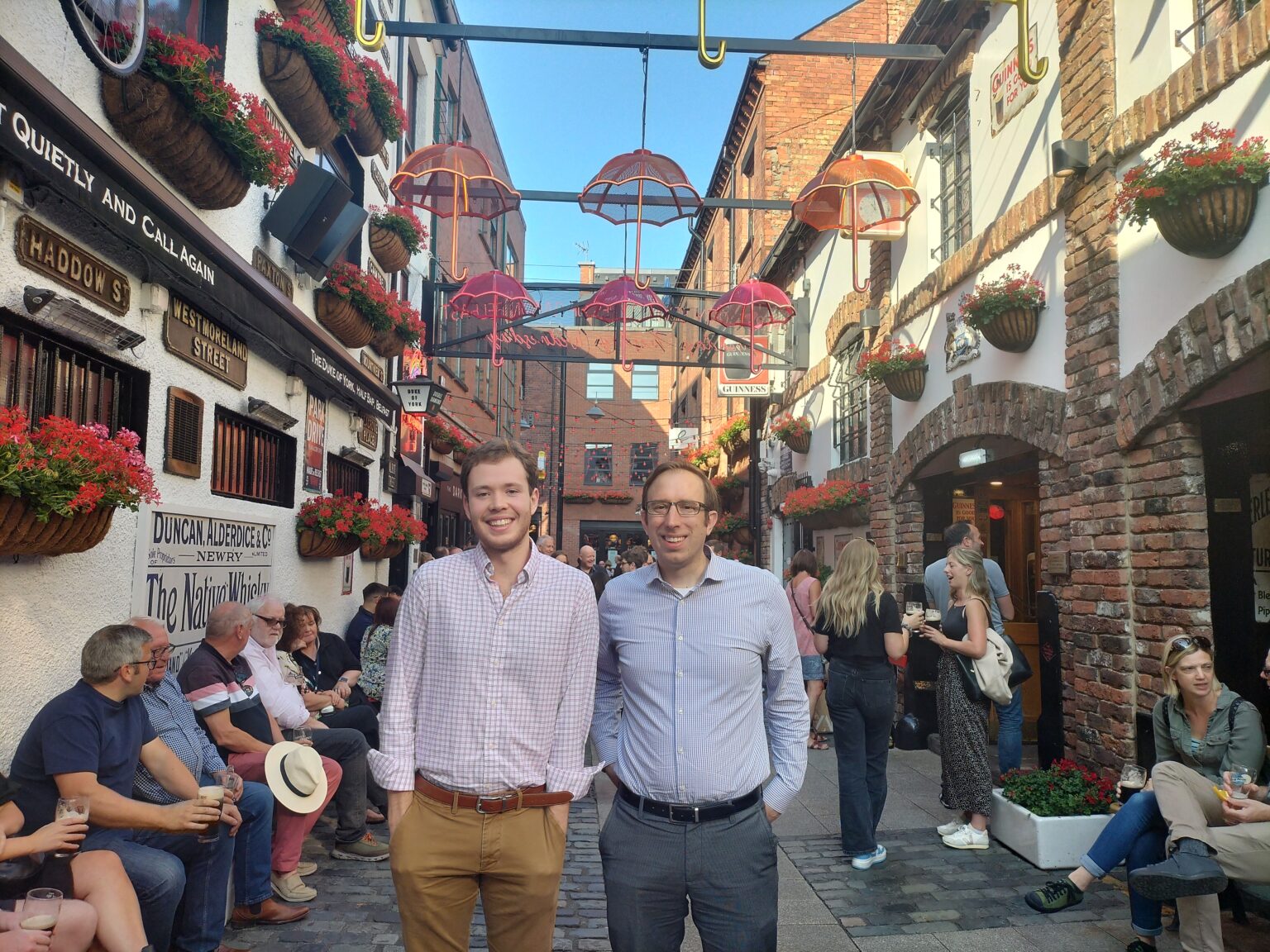
A highlight of those humid Boston summers came when Torous invited him to shadow him at an inpatient psychiatric unit. “Suddenly, this research that I was doing was improving the lives of real people who I could see in front of me,” Cohen said. “That moment was 10 times more fulfilling than my days sitting in the lab doing [statistical] Z-tests.”
In conversation, Cohen often loops back to this theme of benefiting others: “Whether that means using what I’ve learned to help others, coming down from the ivory tower to try and spread that knowledge to those who need it most, [or] reaching out to those who aren’t being served,” he said, “that is something Berkeley has really instilled in me.”
This desire to assist others isn’t limited to Cohen’s medical ambitions — it also surfaces in his jobs as Residential Life’s lead math tutor and as an undergraduate student instructor for an introductory philosophy class. He’s been teaching in some shape or form since seventh grade, when he was a teaching assistant for a first-grade class — a job, he quipped, for which he was probably underqualified at the time.
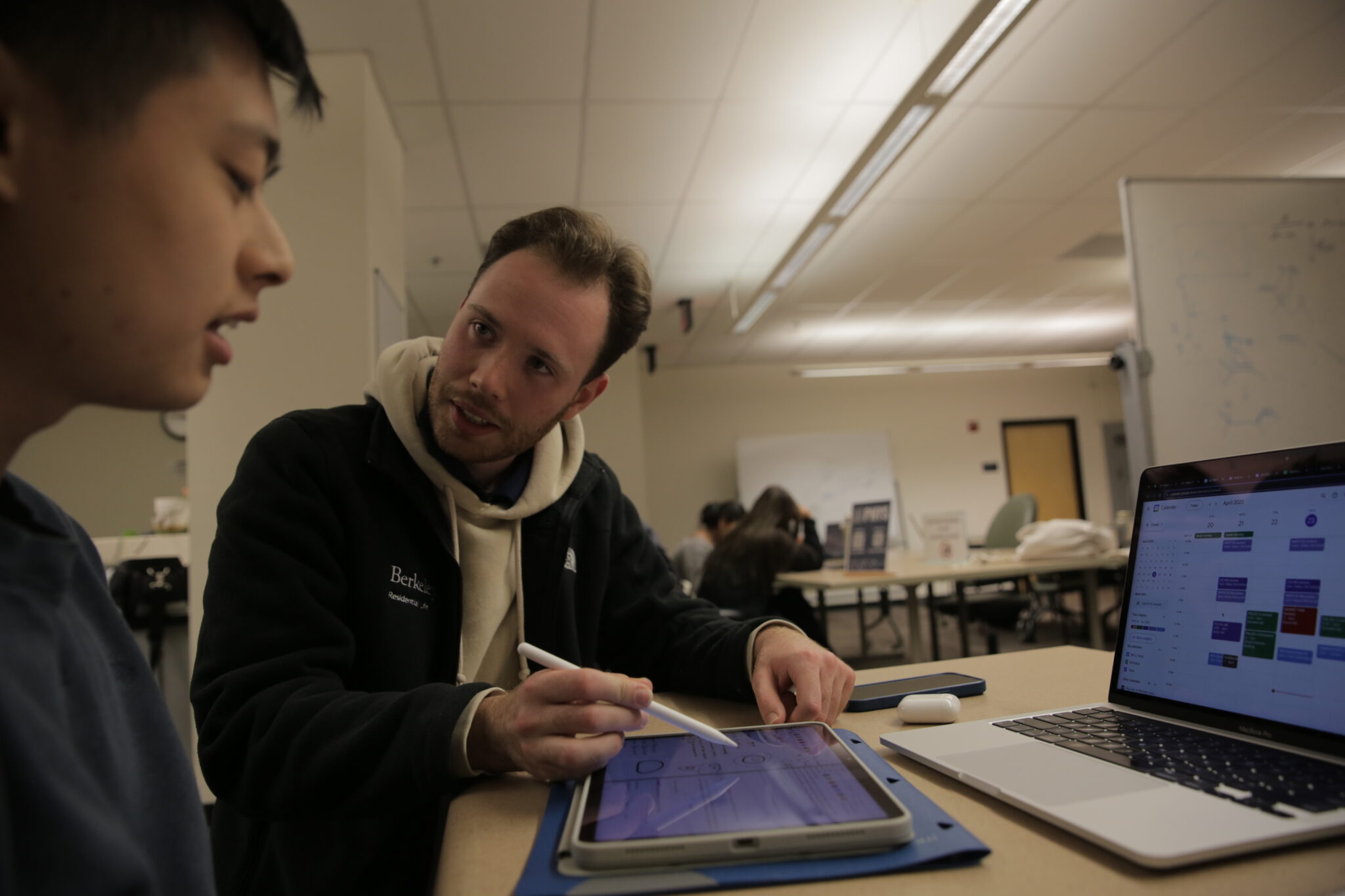
Charlotte Buchen Khadra/UC Berkeley
Now, he lights up when given the chance to talk about tutoring philosophies; he prefers the Socratic method. “In lecturing, the student is silent. Tutoring’s the exact opposite,” Cohen explained. “Hopefully, I’m speaking very little and I’m just asking … these probing questions to help the tutee realize how much understanding they really have.”
That empowering approach stuck out to his tutoring supervisor, Tracy Gregory. “He has the ability and care to uplift those around him, not only in supporting their academic improvements, but in their self-actualization,” she wrote in her recommendation to the University Medal selection committee.
Last semester, Cohen tutored some 300 peers who spanned a long list of majors. But he’s built connections across campus through more than tutoring. As a 16-year-old incoming freshman, before he’d even packed his bags to head to the Bay Area, he emailed the French Club president to get on its mailing list. He’s been a stalwart member ever since and has come full circle to become the club’s president. He also makes a habit of attending Friday services and Shabbat at Berkeley Hillel, where he’s found community with students of different ages and fields of study.
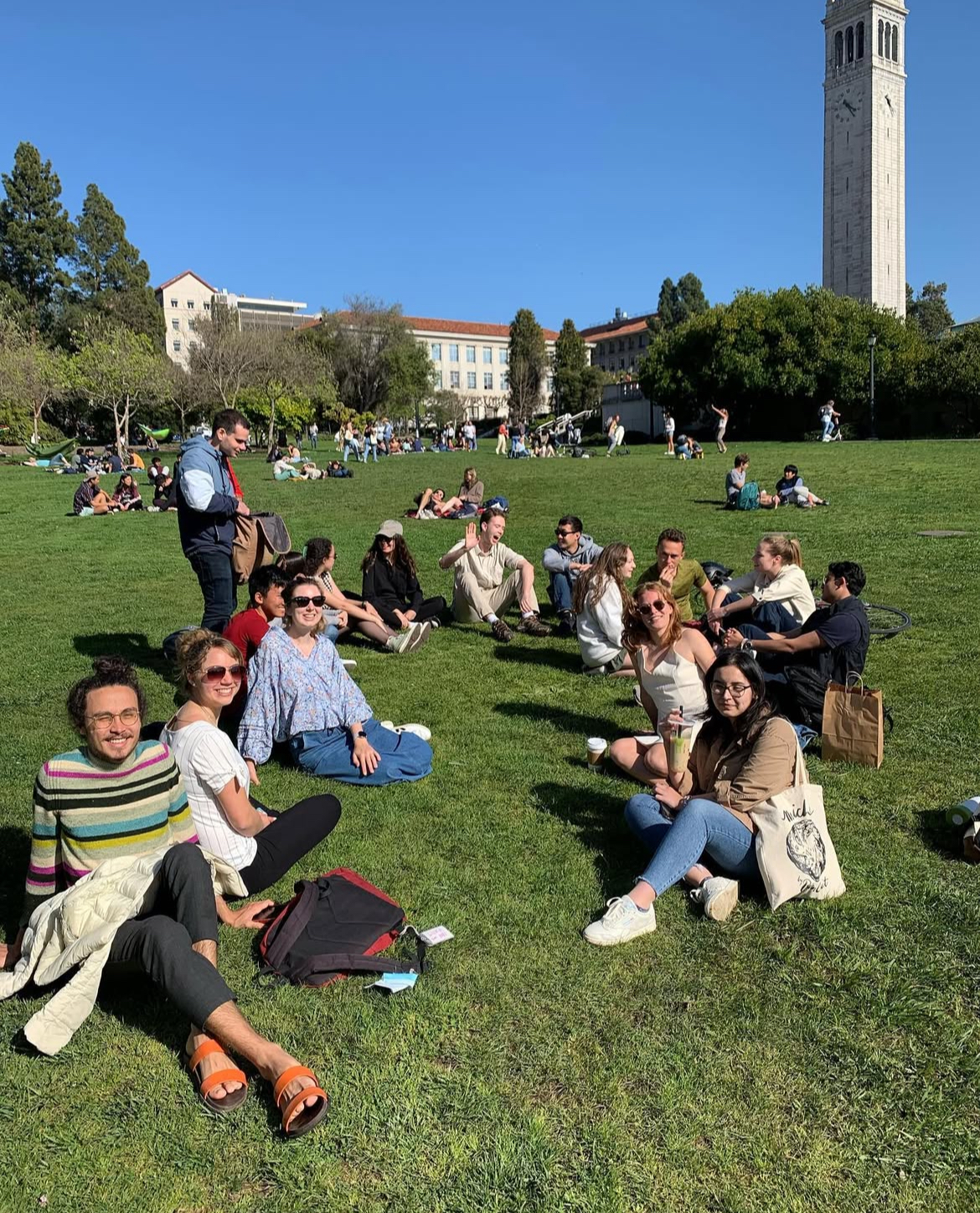
A French Club gathering.
After graduation, Cohen will visit France for the first time since he was 9 and served as a pint-sized translator for his parents. After feasting on French cheeses, he’ll head to Yale Medical School, where he has received a scholarship. While he’s still deciding which medical specialty to pursue, he knows he prefers having in-depth conversations with adults to the quiet of a radiology room or the clamor of a pediatric clinic.
For now, though, Cohen has two more weeks at UC Berkeley. He said he won’t miss particular places on campus, but rather the people he sees in each spot. A few months ago, he was asked to share a “Shabbat thought” at Hillel after the group had prayed over glasses of wine and fresh challah. That Friday’s Torah reading had been about constructing the tabernacle, or portable sanctuary, that the Israelites carried as they journeyed through the desert. Cohen reflected on how he had found sanctuary in community, in meeting people at Hillel, from campus leaders to fellow undergrads.
The same might be said for his college experience: It is the people — the connections they forge and the knowledge they share — who make UC Berkeley a place that students like Cohen can learn at, thrive in, and call home.
